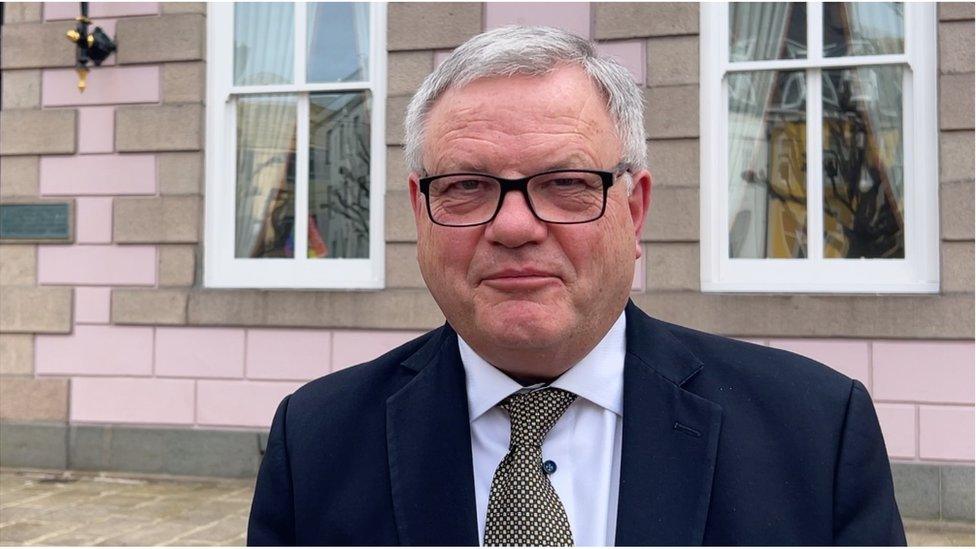Same-sex parents given equal rights in Jersey
- Published

Currently under law a child may only have up to two legal parents and one will always be the birth mother
Same-sex parents in Jersey will be given the same legal rights as mixed-sex parents.
Politicians in the States Assembly unanimously approved a draft law aimed at reflecting modern family structures.
Officials said the proposals were "fundamentally concerned with progressing children's rights".
The children's minister described it as an "important day" and said the changes would come into effect by the end of 2024.
Under Jersey law, a child may only have up to two legal parents and unless the child is adopted, one of the parents will always be the birth mother.
As the island's Register of Births only has spaces for a mother and a father, no more than one of the parents in a same-sex couple can currently be named on a Jersey birth certificate.
But the changes agreed by States members will allow both same-sex parents to be named on a birth certificate, and therefore registered as a child's legal parents.
'Very significant'
Further aspects of the draft law will enable parents who use surrogacy to become legal parents without having to adopt their own child.
It will also allow mixed-sex couples who conceive a child using donor sperm to be given legal parent status and mixed-sex civil partners to acquire legal parent status in the same way as a married couple.

Constable Richard Vibert says it is a 'very significant' decision
It will also see the acquisition of parental responsibility by a step-parent, subject to agreement.
The Children's Minister, Constable Richard Vibert, said the States Assembly had made a "very significant" decision which would "dramatically" improve the lives of many island families.
"This is an important day," he said.
"It shows that this is going to be law, and couples can finally see the light at the end of the tunnel."
Mr Vibert said secondary legislation and guidance would follow, and the law would be "fully functioning" by the end of the year.
The changes will mean the government meets its obligations as a signatory to the United Nations Convention of the Rights of the Child - ensuring children's rights were protected in law and in practice.

Follow BBC Jersey on X (formerly Twitter), external and Facebook, external. Send your story ideas to channel.islands@bbc.co.uk, external.
- Published21 December 2023
- Published15 September 2023